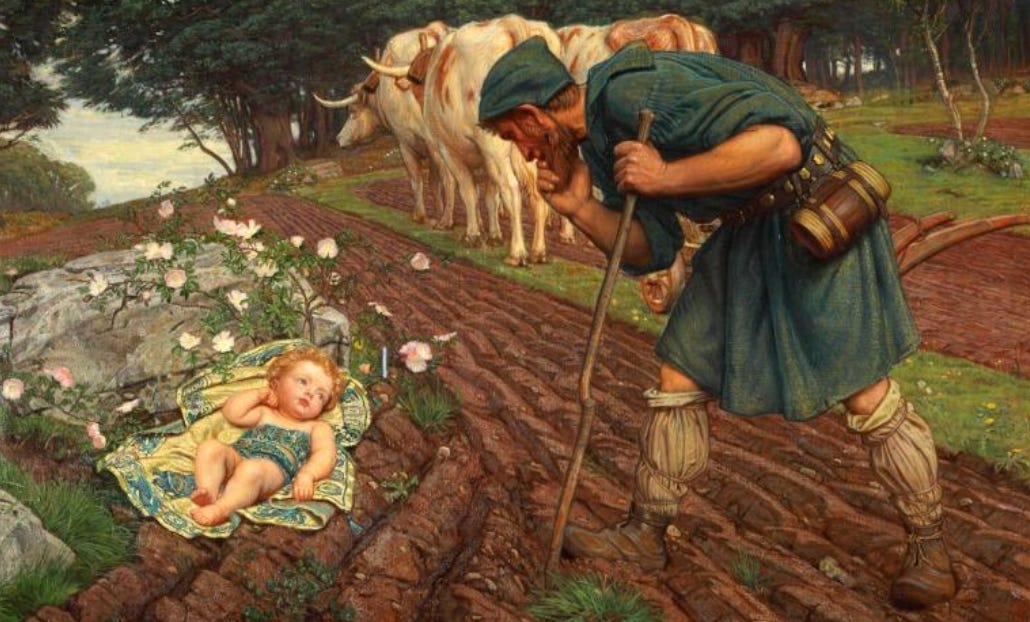If You Want To Defeat Your Enemy, First Learn Their Songs
The construction - and deconstruction - of the national narrative
Have to admit I did have a touch of schadenfreude reading Daniel Hannan’s handwringing article in Saturday’s Daily Telegraph headlined “If flags become markers of ethnic identity, I fear the Britain I once loved will disappear”. He rightly observed that the sudden impulse to fly British and English flags from lampposts is being used to signal control of territory, comparing it to the manner in which the Unionist and Nationalist communities fly flags to display the sectarian identity of the inhabitants of particular areas.
I too am dismayed at this development, but I found Hannan’s complaints a bit much to take. As one of the leading lights of the Brexit campaign, he helped to open the Pandora’s Box of identity politics. Now, he fears that the Britain he once loved is under threat from Nigel Farage. Of course, he seeks to pass the blame for this development onto to ‘official multi-culturalism’, saying that people are fed up with being told not to have pride in Britain. Not nearly as fed up as they are with the NHS not getting that extra £350m a week, Daniel!
The thing that really struck me about his argument was his description of a visit to a school in Wembley led by Katherine Bibalsingh, beloved of the right wing media as “Britain’s Strictest Headmistress”. “I was moved almost to tears” waxed Hannan “by the pride and enthusiasm with which her students, most of whom speak other languages at home and 90 per cent of whom are non-white, would sing patriotic songs and declaim Kipling’s verses. If every school in the land were like hers, we would not be in this mess.”
I’m not sure that’s any guarantee of re-creating the Britain that you and your Telegraph readers once loved, Dan.
The songs we sang when I was at junior school in the late 1960s came from a songbook called Sing Together, published in 1967. Secular songs mostly from the UK, they were a way of introducing us to the national narrative of the time. There were a number of what you might call folk songs like ‘Green Grow the Rushes-O’, ‘Early One Morning’, ‘The Wonderful Derby Ram’, ‘The Keeper’ and ‘The Ash Grove’. Given our maritime history, there were also plenty of sea shanties such as ‘Farewell and Adieu to You Spanish Ladies’; ‘A-Roving’; We’re Bound for the Rio Grande’. There were even a few overseas numbers like ‘Shanandoah’, ‘Marching Through Georgia’ and one I never understood called ‘Down in Demerera’ - something about sitting like birds in the wilderness.
We must have sung these songs over and over week-in week-out during our singing lesson because, as I type out the titles, I can hear the tunes in my head and amazingly, given the passing of 60 years, can still recall the lyrics.
Then there were the songs that were miniature history lessons, and, though I have retained the words, the factual content remains obscure. ’Heart of Oak’ which I could probably sing through if you played it on a penny whistle, refers to ‘This glorious year’ although we were never told which year it is commemorating. Then there’s Hector and Lysander in ‘The British Grenadier’ - sorry, who? And don’t get me started on ‘Bonnie Dundee’. It’s a fabulous tune which I love to this day but from the opening line I’ve no idea what’s going on: “To the Lords of Convention twas Claverhouse spoke……” There is a great bit about the bells ringing backwards, though.
And as for being able to “declaim Kipling’s verses”, I’ve borrowed more lines from Kipling for my songs than from any other poet. My point is that my generation had that patriotic education and we grew up to be punk rockers, despite being taught to sing ‘a tow-row-row-row-row-row for the British Grenadiers’. An education should give you a grounding in your own culture, while offering you examples of other cultures from around the world. But once you leave school and enter adulthood, you alone get to choose which aspects of your culture you identify with and which you reject.
Few of us remain totally in thrall to the narrative we learned at school. Around twenty years ago, I came across some posters at a local flea market of the kind that I recall being on the wall in my junior school. I thought they’d look great in frames so I bought half a dozen. One depicted geometric solids, another ‘People’s of the World’. I was particularly struck by a reproduction of a painting by Charles March Gere, an English artist of the Arts and Crafts Movement.
‘The Finding of the Infant St George’ was created in 1892 and shows a medieval ploughman discovering a baby among the furrows of an English field. This poster was deemed suitable for display in junior schools by educators in post-war England, leaving pupils with the idea that our patron saint was a son of the soil, rather than a soldier from the Levant.
The people franticly painting the flag of St George on roundabouts and hoisting it on lampposts this past week are involved in the same game as Gere and his painting, trying to claim something that doesn’t belong to them. They want us to believe in their narrow narrative about what it means to be English, but we’re not children anymore. We know it is a lie.



This is quite similar to what many republicans in the US are doing: making changes in support of their vision of white nationalism, then blaming the democrats, and even the non-whites, for it.
Great writing. I remember most of those songs too, great tunes but not exactly philosophical guidelines! Rock on, Billy!